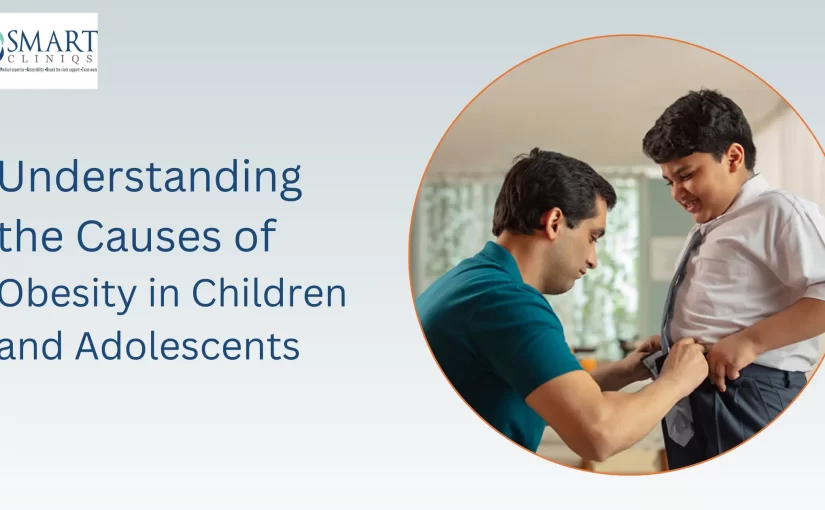Mini Gastric Bypass Surgery: A Comprehensive Guide to Weight Loss and Health Benefits
Bariatric surgery has become increasingly popular due to its proven effectiveness in achieving long-term weight loss and resolving weight-related health problems compared to non-surgical methods.
Mini Gastric Bypass Surgery, also known as One-Anastomosis Gastric Bypass Surgery (OAGB), is a type of bariatric surgery that is minimally invasive and involves creating a smaller stomach pouch (restriction) to limit food intake and rerouting part of the small intestine (malabsorption) to reduce nutrient absorption. The result is both decreased food intake and less calorie absorption, promoting significant weight loss.
What is a Mini Gastric Bypass?
Mini Gastric Bypass surgery is performed under general anaesthesia. It typically involves three to four small incisions. In this technique, a long gastric tube is created, resembling a sleeve and a wide loop anastomosis requiring only one anastomosis (surgical joint). The length of the intestines bypassed varies between 170 cm and 250 cm, depending on the individual needs of each patient.
The mini gastric bypass is classified as a malabsorptive procedure, resulting in reduced absorption of ingested food.
Health Benefits of Mini Gastric Bypass
Mini Gastric Bypass surgery offers significant weight loss and health improvements for people struggling with obesity. Here’s how it benefits you:
- Effective Weight Loss: Patients can expect to lose 60 to 70% excess weight with an initial rapid reduction of 8 to 10 kilograms per month for the first few months and then at a comparatively slower rate. You tend to achieve your target weight in 1-1.5 years post-surgery. Long-term success is dependent on regular follow-up with your surgeon and bariatric dietician and maintaining a healthy diet and exercise routine.
- Reduced Hunger and Increased Fullness: The surgery brings about positive hormonal changes leading to promoting a feeling of fullness with smaller portions, helping you manage hunger and calorie intake.
- Improved Blood Sugar Control and Diabetes Management: Mini Gastric Bypass can significantly improve blood sugar control and even lead to remission of type 2 diabetes.
- Reduced Risk of Obesity-Related Conditions: The surgery can help address other health problems associated with obesity, such as high blood pressure and sleep apnea.
- Potential Reversibility: Unlike some weight loss surgeries, Mini Gastric Bypass is potentially reversible due to its simpler design.
It’s important to remember that Mini Gastric Bypass requires a lifelong commitment to healthy habits. This includes following dietary recommendations, taking regular vitamin and mineral supplements, and attending follow-up appointments with your surgeon.
Lifestyle Changes and Improvements
After Mini Gastric Bypass surgery, expect a hospital stay of about 1 to 2 days. Your surgeon will prescribe pain-relieving medications to manage discomfort. You will be given instructions to follow regarding wound care, diet, and activity such as:
- Keep the incision area clean and dry
- Avoid strenuous exercises and lifting heavy weights
- Sip liquids throughout the day as suggested by the dietician to stay hydrated
- Follow an exercise program as per your surgeon’s instructions to maintain the weight loss
- Take nutritional supplements as advised
How this surgery improves and enhances your overall quality of life:
- Facilitates an active lifestyle – As you lose weight, you’ll likely have more energy for physical activities. Regular exercise (aerobic, strength training, and flexibility) is critical to maintaining weight loss and overall health.
- Helps you manage underlying Associated Medical Issues – Weight loss may improve one’s overall well-being and help manage health conditions such as inflammation, diabetes, arthritis, and other conditions associated with obesity. Your surgeon will monitor your progress, based on which some medications might be eliminated as the health improves eventually.
- Improves Fertility – One possible result of weight loss surgery is improved fertility. If you plan to get pregnant, discuss it with your surgeon. They might recommend a waiting time of 18 months post-surgery.
Eligibility and Considerations
Mini Gastric Bypass surgery may be an option for patients struggling with obesity, but BMI (Body Mass Index) plays a key role in determining eligibility.
Bariatric surgery is for patients with:
- BMI > 32.5 kg/m2 with obesity-related co-morbidities
- BMI > 37.5 kg/m2 without co-morbidities
- BMI > 30 kg/m2 with life-threatening obesity-related disorders like uncontrolled diabetes, cardiovascular disease/cardiomyopathy and severe obstructive sleep apnoea
- Bariatric Surgery to be considered only between the ages of 18 – 65 years
- Bariatric surgery may be considered in patients more than 65 years in the presence of severe obesity-related co-morbidities/disability
- Bariatric Surgery may be considered in patients < 18 years in special situations after paediatrician/endocrinology certification, or after attainment of puberty or completion of skeletal maturity
Consulting with a qualified and experienced bariatric surgeon is essential to determine if the Mini Gastric Bypass Surgery is the right alternative for you. They will consider individual circumstances, including BMI, health history, and overall health goals.
Selecting the Best Surgeon and Facility
Your choice of clinic and surgical team plays a crucial role in the success of your Mini Gastric Bypass surgery. Here’s why top bariatric surgery centres can make all the difference:
- Expertise at Every Step: A renowned bariatric surgeon runs a comprehensive bariatric program. They’ll guide you through pre-operative evaluation, ensure you have access to state-of-the-art surgical facilities, and provide extensive support post-surgery.
- A Team You Can Trust: To run a comprehensive bariatric program, it is essential that the team comprises a Bariatric Surgeon, Bariatric Nurse, Bariatric Dietician, Program Managers and Coordinators.
Before deciding, take some time to research renowned bariatric surgeons. Here are some key factors to consider:
- Accreditation: Look out for clinics and surgeons accredited by recognized healthcare organizations, ensuring they meet the highest safety standards.
- Surgeon Qualifications: Research the surgeon’s experience and qualifications in performing Mini Gastric Bypass surgery.
- Success Rates: Inquire about the surgeon’s success rates for the procedure.
- Patient Testimonials: Reading real patient experiences can offer valuable insights into the surgeon’s approach and patient care.
Inspiring Success Stories
Ms Kamaljeet, a housewife from Delhi met Dr. Peters with Co-morbidities like Diabetes Mellitus, Hypertension, and a BMI of 46.4 which were making life difficult for her. Post Surgery in 6 months she lost 30 kgs and HbA1C came down to 5.5 from 7.0 and now she leads a normal and happy life free of any medications.
Mr Manish young businessman from Gorakhpur met Dr. Peters with complaints of morbid obesity (BMI: 48.2 kg/m2), backache, joint pains, and breathlessness. After many unsuccessful attempts to lose weight through gym and diet, he decided to undergo bariatric surgery. In a period of six months, he lost about 32 Kg and is maintaining the same through regular follow-up and adhering to a suggested diet pattern.
They are both free from their previous medical issues and are enjoying a vibrant and joyful life. They express deep gratitude to the my entire team for transforming their lives and enabling them to live with renewed energy and positivity.
Embracing a Healthier Future
Mini Gastric Bypass surgery is a game-changer in weight loss surgery. It’s a minimally invasive procedure with big benefits for your health and life. By learning about its advantages, the surgery itself, and what to expect afterwards, you can make a well-informed choice about getting it done at a leading clinic. With proper preparation, support, and following post-surgery instructions, you can achieve significant weight loss and experience a dramatic improvement in your overall well-being.
References
- Bariatric Surgery Patient Stories, Before and After Photos | Dr Atul Peters
- Choosing the Best Mini Gastric Bypass Surgeon and Clinic | by Bariatric Surgeon in Indore | Dr. Achal Agrawal | Medium
- Mini-gastric bypass: Advantages, procedure, and recovery in renowned clinics (medicaltourism.com)
- Clinical Resources (bomss.org)
- Obesity & Metabolic Surgery Society of India – OSSI (theossi.com)







